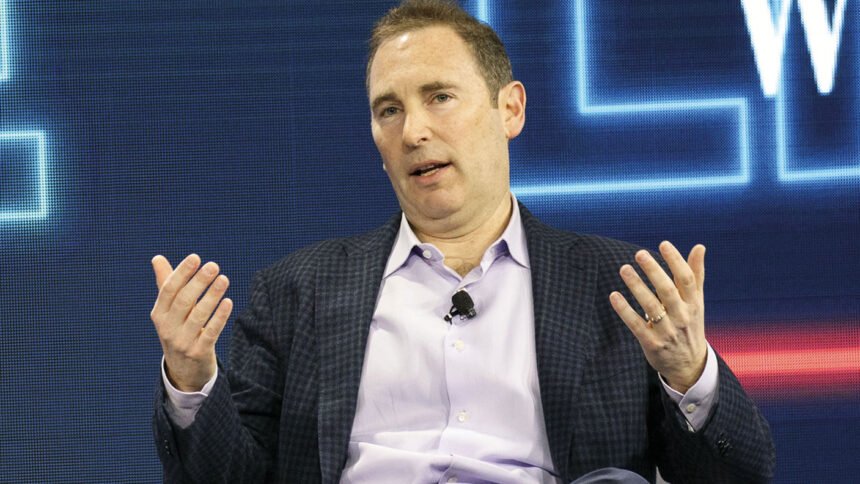In a message to Amazon employees and a recent CNBC interview, CEO Andy Jassy delivered a striking warning: generative artificial intelligence (AI) is reshaping how Amazon operates so fundamentally that “we will need fewer people doing some of the jobs that are being done today.”
While this shift is expected to reduce Amazon’s corporate headcount over the coming years, Andy Jassy also stresses that AI will pave the way for entirely new job categories — and potentially make remaining positions more engaging.
On June 17, Andy Jassy shared a memo with company teams outlining how AI is transforming nearly every Amazon business unit. From the Fulfillment Network to AWS and Alexa, he noted that over 1,000 generative AI projects are already underway — and that’s just a fraction of what’s planned.
- Jassy explained that AI agents are starting to perform routine tasks from code generation to travel bookings and customer service resolution.
- As a result, fewer people will be needed for tasks that can be automated.
Jobs won’t disappear completely; rather, they are expected to evolve toward higher-value work in areas such as AI, robotics, and strategic innovation.
Amazon’s Rapid AI Development
Amazon’s goal is straightforward: to automate repetitive and low-value tasks while developing a workforce focused on innovation, AI engineering, and customer-centric solutions.
- The company has launched over 1,000 generative AI services embedded in AWS, Alexa, Amazon shopping, and internal operations.
- Amazon is expanding its AI infrastructure with massive new data center campuses. Notably, Jassy announced a $10 billion AI campus in North Carolina, joining similar projects in Mississippi, Indiana, Ohio, Pennsylvania, and beyond.
- The Fulfillment Network has introduced over 1 million robots, making automation a central component of warehouse operations and efficiency.
AI’s Impact: Fewer Jobs, New Opportunities
Jassy acknowledges that workforce reductions are likely to continue in corporate roles as AI improves efficiency, and he also points out an opposing trend: an increase in job opportunities in AI, machine learning, robotics, and technical operations.
For example, Amazon is actively hiring for more than 500 positions in robotics and machine learning, reflecting the company’s integration of technology into its logistics operations.
Station Shifts: From Routine to Strategic
Jassy’s vision is straightforward: AI should let every employee start their work at a higher level by cutting down on routine tasks. The result? Roles become more strategic, more interesting, and with richer human judgment involved.
Inside Amazon, this message is resonating. While many employees express concern — describing the shift as “demoralizing,” particularly as AI begins to replace white-collar work — others view it as an opportunity to grow, learn, and pivot into higher-impact roles.
Amazon’s move mirrors a wider wave reshaping corporate America.
- Salesforce CEO Marc Benioff estimates that AI is now handling 30–50% of the work at his company.
- Shopify is asking employees to justify the necessity of their roles in light of AI capabilities.
- Duolingo and Klarna are utilizing AI to replace contractors and reduce headcounts as automation advances.
Economists caution that while automation may not destroy all jobs, structural shifts are particularly significant — especially for entry-level and mid-tier roles. Workers who adapt could thrive; those who don’t may find themselves sidelined.
Amazon’s push into generative AI isn’t just a tech initiative — it’s a labor-market revolution. Jassy’s candid acknowledgment that fewer people may be needed in some corporate roles marks a departure from corporate doublespeak. At the same time, the AI shift opens vast opportunities for those ready to evolve.
For American workers contemplating their futures, the takeaway is unmistakable: embrace AI or risk being left behind. Those who lean in — upskill, think differently, explore new hybrid roles — may thrive in this next era of work. For companies, the task is to balance efficiency gains with ethical considerations and robust support for displaced employees.
What’s clear is this: AI is not just changing Amazon. It’s reshaping the future of work — and our collective response will determine who succeeds in the world that emerges.






